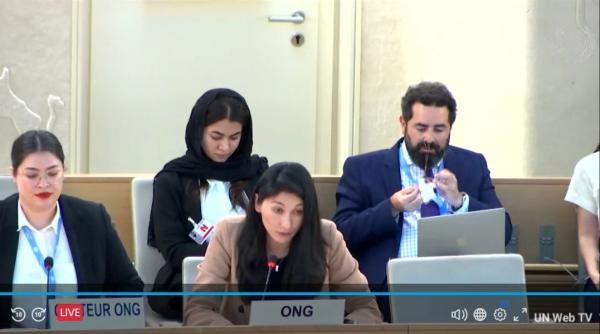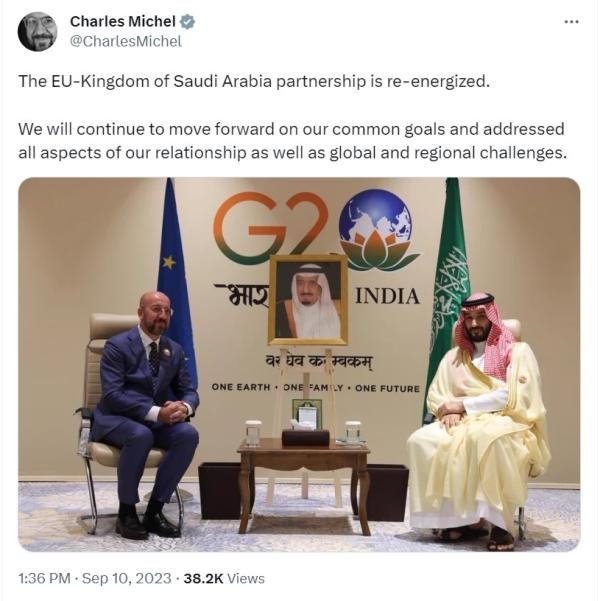Lire la version en français
When you speak at the UN Human Rights Council in Geneva, you don’t have a lot of time. It doesn’t matter how expertly you know a situation or that you have done extensive research on the atrocity crimes you’re describing.
As the representative of a non-governmental organization (NGO), you get 90 seconds. That’s it.
To understand the focus and levelheadedness this takes – to summarize a horrific situation of extreme human misery somewhere and put forward practical solutions, all in a minute and a half – you really should watch this video. It shows how my colleague and brilliant researcher Fereshta Abbasi nailed it in Geneva yesterday.
Go on, click the link. It will only take you 90 seconds. Then come back here. I’ll wait…
Amazing, right?
The list of Taliban crimes is long and soul-crushing, and it obviously demands more than 90 seconds of attention from governments around the world. (And for those who’d like to spend a bit more time reading what Fereshta said, we’ve published her written statement here.)
What’s more, what she was saying is something new for Human Rights Watch.
We’ve published many times in this newsletter and elsewhere about the situation in Afghanistan, which is, among other things, “The Most Serious Women’s Rights Crisis in the World,” but our presentation in Geneva yesterday adds an additional layer.
Our experts in international law have examined the situation and concluded that Taliban authorities in Afghanistan are committing the crime against humanity of gender persecution against women and girls.
This goes to the systematic nature of Taliban brutality. Since retaking control over the country in August 2021, the Taliban have imposed laws and policies intended to deny women and girls throughout the country their fundamental rights because of their gender.
You can read our detailed legal reasoning here, but what it comes down to is straightforward enough. The Taliban’s cruel and methodical denial of the basic rights of women and girls is a serious crime, and it should have serious consequences. Concerned governments need to work together to bring the Taliban leaders responsible to justice.
The way to go about this is also clear. Afghanistan is a party to the Rome Statute of the International Criminal Court. On October 31 last year, the court authorized the ICC prosecutor to resume its investigation into the Afghanistan situation, which was first authorized in 2020.
The ICC’s investigation in Afghanistan can provide the path toward accountability for the crime against humanity of gender persecution. We need to make sure the ICC has the resources and needed cooperation from other governments so that its prosecutor can investigate this crime alongside the other serious violations he is looking into.
Many governments around the world have been rightly condemning Taliban crimes. They have to put their money where their mouth is – and over the long term.
They need to give justice more than 90 seconds.







